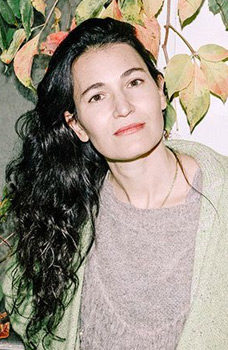Author Biography | Interview | Books by this Author | Read-Alikes

Nicole Krauss is the author of the international bestsellers, Forest Dark, Great House, a finalist for the National Book Award and the Orange Prize, and The History of Love, which won the Saroyan Prize for International Literature and France's Prix du Meilleur Livre Étranger, and was short-listed for the Orange, Médicis, and Femina prizes. Her first novel, Man Walks Into a Room, was a finalist for the Los Angeles Times Book of the Year. In 2007, she was selected as one of Granta's Best of Young American Novelists, and in 2010 she was chosen by The New Yorker for their "Twenty Under Forty" list. Her fiction has been published in the New Yorker, the Atlantic, Harper's Magazine, Esquire, and The Best American Short Stories, and her books have been translated into thirty-seven languages. She is currently the first Writer-in-Residence at the Zuckerman Mind Brain Behavior Institute at Columbia University. To Be a Man, her first collection of short stories, will be published in November 2020.
Nicole Krauss's website
This bio was last updated on 10/16/2020. In a perfect world, we would like to keep all of BookBrowse's biographies up to date, but with many thousands of lives to keep track of it's simply impossible to do. So, if the date of this bio is not recent, you may wish to do an internet search for a more current source, such as the author's website or social media presence. If you are the author or publisher and would like us to update this biography, send the complete text and we will replace the old with the new.
I started to write The History of Love in the spring of 2002, just
after my first novel was published. It was a strange time: wonderful, but also
melancholy. Something about the feeling of writing seemed to change for me once
the book was published. I felt, a bit, as if I'd lost something hard to put my
finger on, something personal and natural that I'd loved about writing. I was
working on a new book, but my heart wasn't quite in it. So one day I decided to
throw away the hundred or so pages I had. I wanted to give up my old ideas about
writing - or at least about trying to write well - and just write something for
myself. To no end. A nothing.
Soon after that, Leo's voice appeared on the page. It was so familiar to me: at
once the easiest thing I'd ever written, and also the most alive. Sometimes I
even confused his voice with my own, or was unable to tell us apart; strange to
say, considering he's an eighty-year-old man from Poland. But with the arrival
of Leo's voice, I found a way to write about things that were personal without
being autobiographical. To me that's an important distinction. If I were to
write an autobiographical sentence about this moment, I ...






Your guide toexceptional books
BookBrowse seeks out and recommends the best in contemporary fiction and nonfiction—books that not only engage and entertain but also deepen our understanding of ourselves and the world around us.